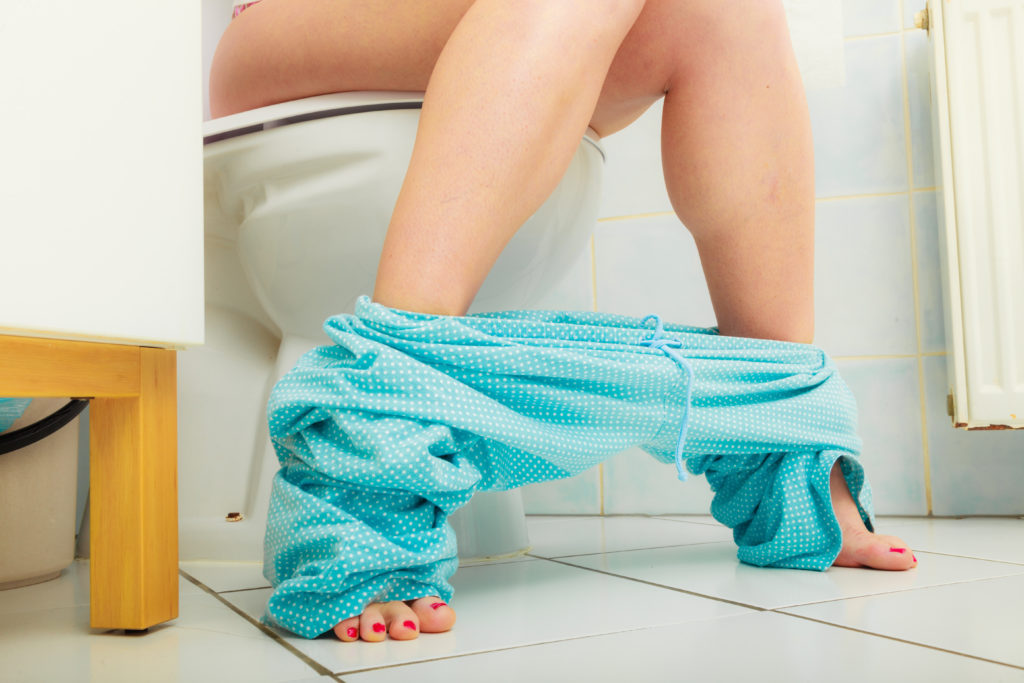New study: Nocturnal pee indicates high blood pressure
In a new study has shown that nighttime Urination can be a sign of high blood pressure. The more often you need to go at night to the toilet, the higher the probability of hypertension is therefore.
Risk factor for cardiovascular disease
According to health experts, over one billion people worldwide suffer from hypertension. However, many people are still unaware of their high blood pressure. This can be dangerous: Untreated high blood pressure is one of the biggest health risks in the Western world. He is a disease risk factor number One for heart-circulation-and thus for many cases of death due to heart attack or stroke, be responsible. Thus, it can be a life-saver to know the signs of high blood pressure. One of these is frequent urination in the night. This was found out by Japanese scientists.

Note on high blood pressure
The nocturia (increased night urination) can be a sign of high blood pressure.
This was the result of a study that was recently presented at the scientific meeting of the Japanese Circulation Society (JCS 2019) in Yokohama, the European Society of Cardiology (ESC) reported in a message.
“Our study shows that, if you need to at night to urinate – as nocturia – referred to; You may have increased blood pressure and / or excess Liquid in your body,“ said the study’s author, Dr. Satoshi Konno from the Tohoku Rosai Hospital, Sendai, Japan.
“If you suffer from nocturia, ask your doctor to check your blood pressure and your salt intake.”
Japanese eat more salt
Previous studies from Japan have shown that a high salt intake with nocturia, or nocturnal urination due to reduced salt consumption are avoidable.
According to the ESC-communication, the people eat in Japan compared to Western countries, more salt, and salt are rather sensitive, which means that your blood pressure rises with salt intake a stronger.
Taken together, these two factors mean that people in Japan have a higher risk to develop high blood pressure.
Relationship between nocturia and hypertension examined
The current study examined the relationship between nocturia and hypertension in the Japanese population.
The researchers evaluated data from 3.749 inhabitants of the Japanese town of Watari, in which 2017, a health check was carried out.
In the case of the study participants, the blood pressure was measured. In addition, you should give by means of questionnaires, information about your nocturnal pee.
Participants with a blood pressure of 140/90 mmHg or higher or prescribed antihypertensive medication were classified as hypertensive.
No causal link demonstrated
The scientists were: nocturia (or more nocturia events per night) was associated after control for possible confounding factors significantly associated with hypertension.
The risk for hypertension increased significantly as the number of nocturia increase in events per night.
“We found out that getting Up in the night to urinate was associated with a 40 percent higher likelihood of hypertension,” Dr. Konno. “And the more toilet visits, the higher the risk for hypertension.”
Of the 1.882 study participants that replied to the questionnaire, had 1.295 (69 percent) of nocturia.
Dr. Konno said that the results show no causal relationship between nocturia and hypertension, and may not apply to populations outside of Japan.
“The relationship can be influenced by various factors, including style, salt intake, ethnicity, and genetic Background of Life,” said the author of the study.
Heart disease prevention
“Hypertension is a national disease in Japan. The average salt intake in Japan is approximately 10 g / day, which is more than Double the global salt consumption (4 g / day),“ said Dr. Mutsuo Harada, press coordinator of the meeting JCS 2019.
“This excessive salt intake depends on our preference for sea food, soy sauces, so that the salt restriction is difficult to implement,” says the expert.
“The early detection and treatment of hypertension are very important to cardiovascular prevent diseases. We should bear in mind that nocturia is not only caused by urinary organ problems, but also by systemic diseases such as high blood pressure.“
The ESC President Professor Barbara Casadei added: “Worldwide, more than a billion people suffer from hypertension. High blood pressure is the leading cause of premature death and caused 2015-almost ten million deaths.“
And further: “The guidelines of the ESC recommend medications to reduce the risk for strokes and heart diseases. Also, a healthy Lifestyle is recommended, including salt restriction, alcohol reduction, healthy diet, regular exercise, weight control, and Smoking cessation.“ (ad)
